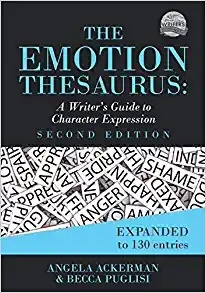This is a subject that’s near and dear to my heart. Mostly because at one point in my writing journey, I totally sucked at showing the reader what was going on. I was all about the telling, and anytime someone critique my fiction, I always got called out for it.
At first I was ticked off. Why couldn’t people see past what I wrote to see what I actually meant? After a while, I realized how ridiculous that was. The whole point of being a writer isn’t to write, so much as it’s to convey what you mean and feel in a way others can know it too. One of the best ways to do this is to spend time building up your description to show readers what you mean, not just spoon feed it to them.
So how much showing should fiction writing have? I personally think it should be a balance. If you had all showing, or all telling the writing just doesn’t work well. So maybe about half and half? But that all depends on the writer and what’s being written too.
One thing I learned on my writing journey is that developing writing skills take time. Just because you decided to make improvements in a certain area doesn’t mean you are going to see significant results right away. Just be conscious of the change you want to make, and work at it a little each time you sit down write. This particular area took me years to build, but it’s been worth all the effort. Here are a few things I did to develop my showing and telling.
First, I studied examples of showing and what made it different from telling. I even took a course through a writing acquaintance Michael Knost who really helped me understand the key component of what showing more description looks like.
The first thing is to know that a big part of showing is really about emotion, and letting the reader feel what the character is feeling. So it means going a little deeper. And for bonus points, if you can convey a sense of emotion without actually writing the emotion out, that’s where the gold is.
An example would be like this…
Example of Telling: Karen wept for her daughter.
The emotion here is sadness. So let’s show the sadness, and for extra credit let’s do it without saying wept, sad, or sorrow.
Example of Showing: The savage storm raged inside Karen as tears streaked down her cheeks in a relentless waterfall.
That’s a pretty big difference. Those sentences are conveying the same idea (or emotion), but in a totally different way.
For me, this wasn’t so easy in the beginning. I was so used to telling that it felt like I was walking through molasses every time I had to slow down my writing to add more description. But I realized that in slowing down, I was really doing myself a big favor.
I also started paying more attention to my own emotions. Exactly how I felt during high emotional times. What sort of analogies I would liken those emotions to. And where I might feel those emotions in my body.
I also purchased this handy book The Emotional Thesaurus. This resource has been the single most used writing tool I have ever used. In fact, I don’t even have to pull it out most of the time now. I’ve pretty much memorized many of the more common emotions that I use in my writing.
Continue reading “Writing Tip: How To Balance Showing and Telling in Fiction Writing” →




